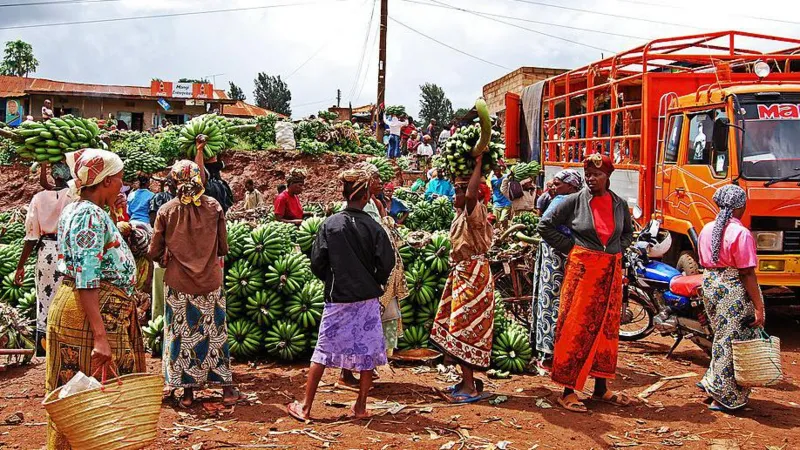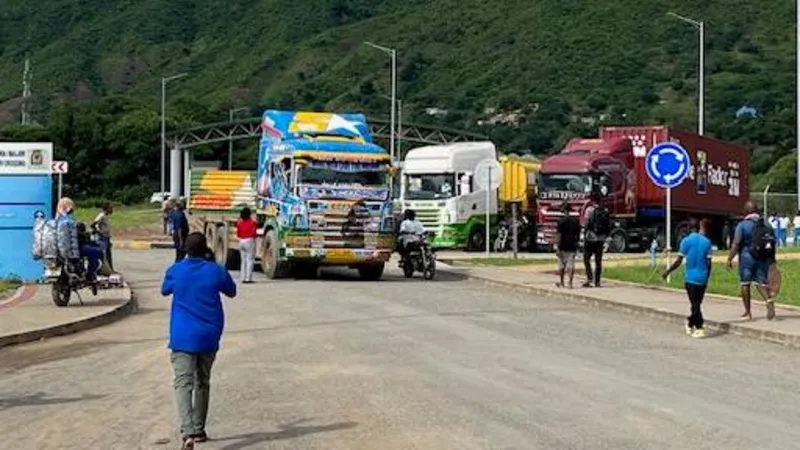At the Kasumulu crossing, through which most Tanzania-Malawi trade passes, only a handful of lorries transporting cargo such as fuel were spotted on the Tanzanian side.
On a normal day, more than 15 lorries loaded with agricultural produce would cross the frontier, drivers told BBC.
On the Malawian side, many lorries that should be transporting bananas and tomatoes through Tanzania were parked and empty.
“[The drivers] are now trying to find alternative products to transport. It’s been very difficult for them because they are used to carrying agricultural goods, and now they can’t carry not just bananas and tomatoes, but even maize and potatoes,” Happy Zulu, a business person, told BBC.
Trade flows between Tanzania, Malawi and South Africa – all members of the Southern African Development Community (Sadc), a regional political, security and economic body – were already being affected last week.
On Saturday Bashe posted a social media video showing a pile of rotten bananas in a truck stranded at the border with Malawi, saying it was hard for Tanzania to tolerate the trend.
Tonnes of tomatoes also spoiled at the border recently after lorries from Tanzania were denied entry into Malawi.
Malawi has become an increasingly important market for Tanzanian goods in recent years, with exports trebling between 2018 and 2023, according to official Tanzanian figures.
But while Tanzania can seek alternative markets such as in Kenya, Namibia and South Sudan, landlocked Malawi may find it harder to get its goods out of the country.
Much of its exports go through the Tanzanian port of Dar es Salaam, as well as essential imports such as fuel and machinery.
Losing access to Dar es Salaam would likely force Malawi to move shipments through the Mozambican ports of Beira and Nacala – options that may be more expensive.
Bashe argued the ban was not meant to provoke a trade war but to protect Tanzania’s interests.
“Tanzania will not continue to allow unequal market access to persist at the expense of its people,” he said. BBC



